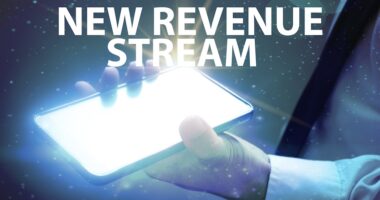Go directly to the content

Last week, Play Illinois forecasted that legalizing online casinos has the potential to generate an additional $105.6 million in annual tax revenue for Illinois. How might this extra income be utilized to improve the well-being of Illinois residents? Here are a few suggestions we suggest.
According to data provided by The Innovation Group to the American Gaming Association, it has been determined that Illinois residents gamble an estimated $1.65 billion each year on illegal online casino websites.
It is better to regulate and tax existing activities as a way to protect our citizens. Additionally, the revenue generated from licensing online casinos could be used for helpful purposes without the need for raising taxes.
What Illinois could do with revenue from online casinos
Perhaps the best approach for Illinois to utilize an additional $105 million per year is to focus on the economic goals set forth by Governor JB Pritzker for his second term, following his re-election in November 2022.
They include:
1. Decreasing Illinois’ massive pension debt of $140 billion
According to the Commission on Government Forecasting and Accountability of the Illinois General Assembly, an additional tax revenue of $105 million would have a negligible impact on the state’s pension debt, which totaled nearly $140 billion as of December 2022.
Nevertheless, steps need to be implemented to deal with this substantial pension problem.
Pritzker’s prioritization of the state’s pension program is clear, as evidenced by the additional $500 million allocated in the 2025 fiscal year. Despite this, there remains a substantial need for additional funding.
Illinoispolicy.org reports that the state has failed to adequately fund the pension funds by $58.5 billion since the current funding schedule was implemented in fiscal year 1996.
Ouch.
2. Increasing funding for child care
Pritzker’s goal is for Illinois to become the top state in the US for child care access. In an interview with Chalkbeat Chicago, he stated his commitment to prioritizing child care by boosting funding for child care centers and their staff.
During a press conference on January 4th, Pritzker emphasized the need to streamline the process for young families to access high-quality child care and early childhood education.
When Pritzker announced his 2021 re-election campaign, he clearly expressed his support for offering free preschool and free child care in Illinois.
That necessitates a substantial sum of money.
3. Providing free in-state college education for lower income families
During his second term swearing-in ceremony on Jan. 9, Pritzker announced that education would be his main priority for the next four years, including preschool and early childcare. Additionally, the governor reiterated his commitment to investigating the possibility of providing free in-state college tuition to families with a median or lower income, a proposal he first introduced in 2021.
Given the exorbitant expense of higher education, a significant financial resource will be required.
4. Continuing down the path of fiscal prudence
Pritzker has accomplished Illinois’ first budget surplus in 22 years during the fiscal year 2025. However, despite the administration’s commitment to balanced books, they are now facing potential economic instability.
Therefore, it is essential to have an additional substantial source of annual income.
5. Attracting big employers to Illinois
Pritzker, a politician in the United States, is known as the wealthiest person in office. Prior to his governorship, he and his brother Anthony ran Pritzker Group, a private equity firm. With a reported net worth of $3.2 billion, Pritzker is considered the richest currently serving politician in the US.
Hence, it makes sense that business is a primary focus. The Illinois General Assembly passed a bill on January 8 allocating $400 million for a new Large Business Attraction Fund, as reported by the Madison-St. Clair Record.
This suggests that you might want to consider excluding this from the list of potential recipients of Illinois’ online casino earnings. Keep in mind, though, that in the most recent election, Pritzker put forward a $1 billion fund to attract large companies to Illinois. Therefore, there is a chance that online casinos could help boost this fund to surpass the seven-figure mark.
Why not invest in infrastructure?
Illinois, like numerous other states, is facing deteriorating infrastructure. It is crucial to invest in improvements, a priority that Governor Pritzker has already addressed in his first term.
In 2019, he signed the $45 billion Rebuild Illinois infrastructure bill, the largest infrastructure improvement plan in Illinois history. The plan includes upgrades to roads, bridges, railways, universities, early childhood centers, and state facilities.
While infrastructure is always needed, it is not currently a top financial priority, especially following the recent signing of Rebuild Illinois.
Does Illinois need the money from online casinos?
Does Illinois urgently require the revenue that online casinos could generate?
Desperately? Currently? No.
Right now, Illinois is unexpectedly in a robust financial position, which is uncommon for the state. For most of its recent past, Illinois has grappled with significant debt.
On November 14, 2022, the Governor’s Office of Management and Budget in Illinois released the Illinois Economic and Fiscal Policy Report. According to the report, the state is projected to have a surplus of around $1.689 billion by the end of the 2025 fiscal year on June 30. Additionally, there was a $1.473 billion increase in the revenue forecast from April to November 2022.
The report shows a major improvement in the state’s finances, with the structural deficit decreasing from $3.2 billion annually when Governor Pritzker took office. This reduction reflects the commitment of the Governor and the General Assembly to secure Illinois’s financial stability in the long term.
This led to around $1.8 billion in tax savings for Illinois residents. Additionally, Illinois directed approximately $1 billion to its Budget Stabilization Fund, also known as its Rainy Day Fund, bringing the fund to its highest level ever recorded in state history. By October 31, 2022, the fund held $1.045 billion.
Moreover, Illinois successfully paid off its $3.2 billion federal pandemic loan two years earlier than expected in the first half of FY2023, saving $82 million in interest.
Sounds great, right?
Illinois is set to balance its budget for the first time in 22 years.
Illinois budget deficits forecast ahead
The global economy is teetering on the edge of a recession, with the tech industry experiencing a concerning wave of layoffs. The GOMB is projecting a budget surplus of around $279 million for Illinois in FY2024, but deficits are expected in the following fiscal years.
- A shortfall of $464 million in Fiscal Year 2025.
- There was a deficit of $707 million in the fiscal year 2026.
- A shortfall of $620 million in the fiscal year 2027.
- A shortfall of $792 million was recorded in Fiscal Year 2028.
At the same time, GOMB is predicting the amount of revenue that Illinois will generate from gaming and lottery to be:
- In Fiscal Year 2025, it is estimated that the gaming industry will generate $157 million in revenue, while the lottery sector is projected to bring in $665 million.
- In fiscal year 2025, $200 million out of a total of $678 million was spent.
- In the fiscal year of 2025, $230 million out of a total of $692 million.
- In Fiscal Year 2026, $255 million was spent out of a total budget of $706 million.
- In the fiscal year 2027, $270 million was allocated out of a total budget of $720 million.
- In 2028, $270 million out of a total of $734 million was spent.
Certainly, the Pritzker administration prioritizes the potential $105 million in tax revenue that could come from legalizing and regulating online casinos in Illinois, as it would greatly contribute to balancing the budget.
Furthermore, the approval of online casinos in Illinois has the potential to boost pension funding, improve child care services, offer free in-state college tuition for lower-income families, and attract big employers to The Prairie State.
Protecting Illinois consumers from the risks associated with engaging in illegal gambling.




